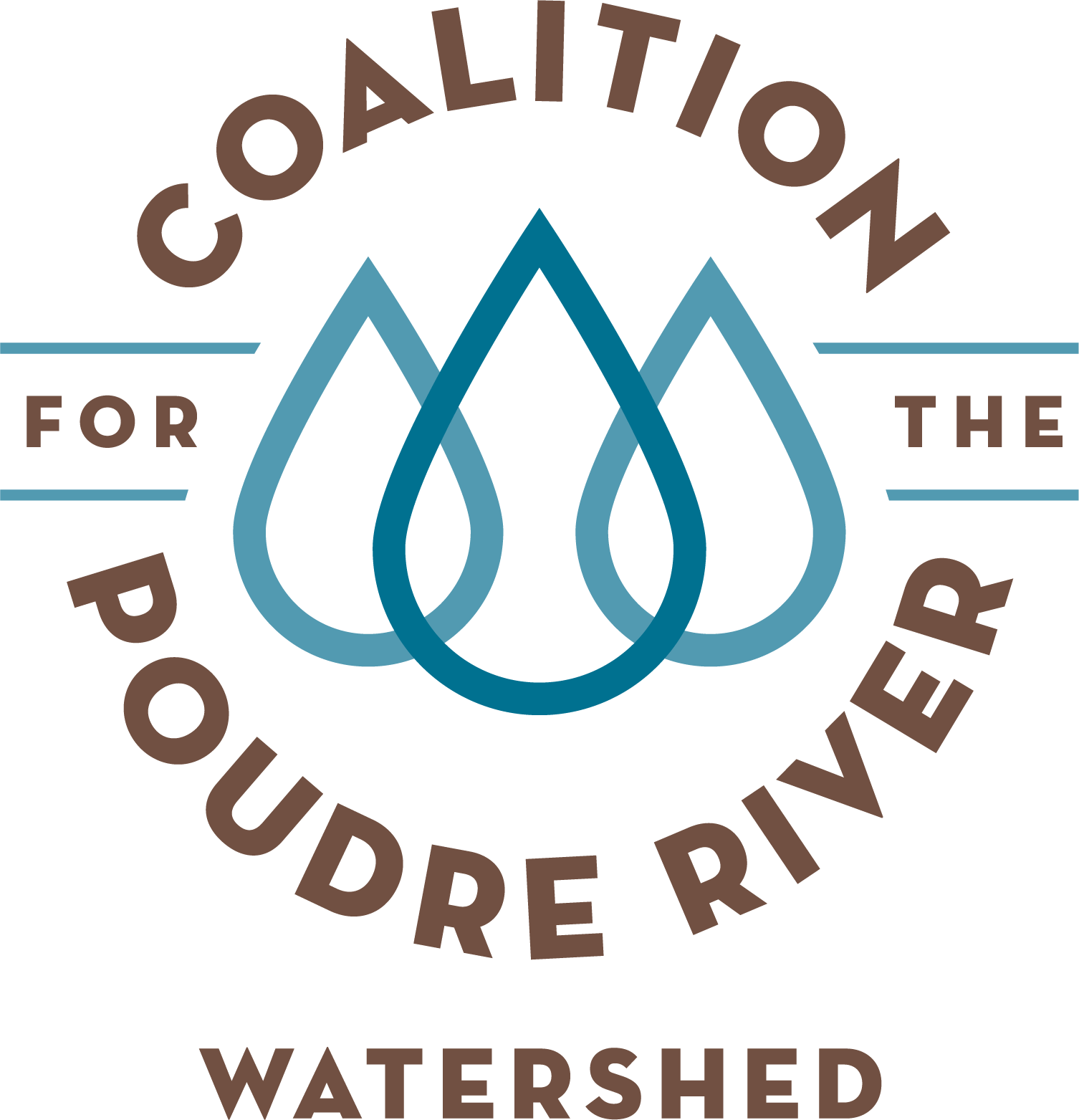Poudre Valley REA + CPRW
About the Partnership
The Poudre Valley Rural Electric Association (PVREA) and the Coalition for the Poudre River Watershed (CPRW) are proud to partner to complete post-fire restoration work within the Cameron Peak burn area. The Cameron Peak Fire of 2020 was the largest in Colorado history, burning over 200,000 acres. The fire affected many PVREA’s customers, both in the burn area and downstream.
Restoring the Poudre River Watershed has been, and will continue to be, a community wide effort. The Poudre Watershed was already facing many challenges, and now CPRW’s work has become even more critical with the impacts of the historic Cameron Peak Fire of 2020. A strong northern Colorado economy and our vibrant communities depend on a healthy watershed.
CPRW staff joined with PVREA team members to accept the donation for work in the Cameron Peak burn area.
2022 Tree Planting - PVREA + CPRW
In fall of 2022, PVREA staff and members joined CPRW to plant 1,500 ponderosa pine trees in the Cameron Peak burn area, helping to restore the land for future generations.
Photos by Summer Rae Photography
Post-Fire Restoration Project - Upper Black Hollow
In 2022, the PVREA donated $50,000 to support CPRW’s post-fire restoration work within the Cameron Peak burn area. The project will focus on stabilizing channels and hillslopes in the upper portions of the Black Hollow watershed to reduce the risk of flood damage to infrastructure adjacent to the Black Hollow Rd. and downstream within the Poudre River Canyon. Water quality and habitat improvements and sediment reduction will be achieved by reconnecting the floodplain and increasing roughness features along a reach of the South Fork Cache la Poudre River.
Black Hollow Burn Severity and Debris Flow
Point mitigation areas in upper Black Hollow watershed.
Project Goals:
Reducing hillslope erosion to streams
Reducing channel erosion (incision and widening)
Increasing sediment storage, nutrient retention, and bed aggradation in eroded channels
The effort will achieve the design intent by installing point-based Best Management Practices (BMPs) at locations downstream of high severity burn. The map above, on the left, shows three potential areas for point mitigation. These mitigation features will be installed in distributed approach in smaller upper watershed channels. Point mitigation, in contrast with area treatments, is designed and implemented along spatial discrete locations in a stream or along hillslopes.
Types of BMPs include: Contour wattles, log jams, live wattles, tree felling, single key log installation, willow/riparian vegetation staking, branch wattles, stream debris fence, and native rock stabilization
Live wattles are made of willow stakes harvested on-site and bundled using biodegradable twine.
Staking approved biodegradable wattles parallel to contours is an effective way to reduce erosion and increase sediment deposition on vulnerable hillslopes, alluvial fans, and small gullies.
PVREA Members - Get involved!
Donate to CPRW
Join the CPRW newsletter for updates about the Poudre Watershed














